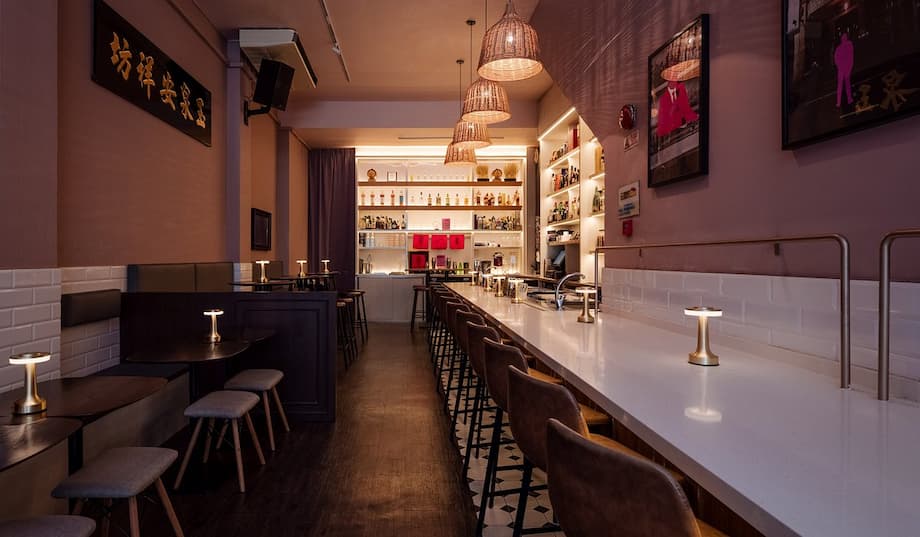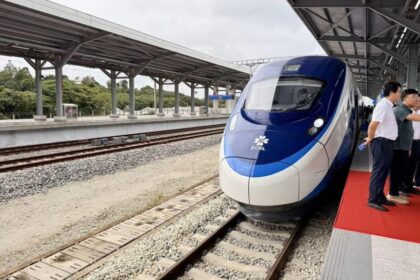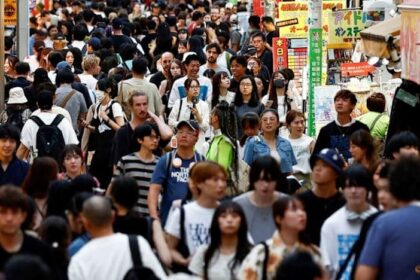Singapore’s Capsule Hotels: Redefining Affordable Luxury
In a city renowned for its soaring hotel prices and cosmopolitan flair, Singapore’s capsule hotels are rewriting the rules of affordable accommodation. Once a niche concept imported from Japan, capsule hotels in Singapore have evolved into stylish, tech-driven spaces that blend comfort, privacy, and social interaction—without the hefty price tag of traditional hotels. As global travel trends shift and urban space becomes ever more precious, these compact hotels are capturing the imagination of travelers and industry experts alike.
- Singapore’s Capsule Hotels: Redefining Affordable Luxury
- What Makes Capsule Hotels So Appealing in Singapore?
- Who Stays in Capsule Hotels? The New Generation of Travelers
- Industry Trends: Innovation, Growth, and Global Expansion
- How Do Capsule Hotels Compare to Traditional Hotels and Hostels?
- Challenges and Opportunities: The Road Ahead
- In Summary
What Makes Capsule Hotels So Appealing in Singapore?
Singapore is consistently ranked among the world’s most expensive cities, especially for tourists. The high cost of living and limited land make affordable, quality accommodation a challenge. Capsule hotels offer a solution: cleverly designed sleeping pods that maximize space and minimize costs, all while providing a surprising level of comfort and style.
Unlike the basic, utilitarian capsules first seen in Japan in the late 1970s, Singapore’s capsule hotels are anything but spartan. Properties like Cube Boutique Capsule Hotels and The POD Boutique Capsule Hotel feature sleek interiors, plush bedding, and communal lounges that encourage guests to mingle. Many are located in vibrant neighborhoods such as Bugis and Chinatown, putting visitors within walking distance of major attractions, shopping, and public transport.
According to a DW report, these hotels are increasingly targeting not just backpackers, but also solo travelers, digital nomads, and even business visitors seeking value and convenience. The Singapore Tourism Board notes that capsule hotels now appeal to both international guests and locals looking for a short, affordable staycation.
Design, Comfort, and Privacy: Breaking the Capsule Stereotype
One of the biggest misconceptions about capsule hotels is that they are cramped and uncomfortable. Singapore’s operators have worked hard to dispel this image. For example, Adler Luxury Hostel in Chinatown was founded by a seasoned traveler who wanted to combine the social atmosphere of hostels with the comfort of boutique hotels. Guests enjoy down blankets, privacy screens, and stylish decor—far removed from the “grungy” hostel stereotype.
Minimalism is a key design principle, but it’s paired with thoughtful touches that enhance guest experience. A recent academic study found that minimalistic design, when aligned with a hotel’s brand personality, can actually increase guest satisfaction and booking intent. For travelers, this means a clutter-free, calming environment that feels both modern and welcoming.
Smart Technology and Social Spaces
Singapore’s capsule hotels are at the forefront of hospitality innovation. Many properties offer app-based check-in, smart lockers, and even facial recognition for added security and convenience. Shared spaces—such as lounges, bars, and co-working areas—are designed to foster interaction among guests, making these hotels especially popular with solo travelers and millennials.
Cube Social, for example, features a riverside bar where guests can enjoy coffee and swap travel tips. The POD Boutique Capsule Hotel offers complimentary amenities like daily linen changes and free laundry, earning rave reviews from guests for its cleanliness and friendly staff. As one solo female traveler wrote on Tripadvisor:
“The pods are cozy and comfortable, with great AC throughout the hostel… The money you pay is worth it and the place is safe and secure!”
Who Stays in Capsule Hotels? The New Generation of Travelers
The rise of capsule hotels in Singapore is closely tied to changing travel habits. Today’s travelers—especially millennials and Generation Z—value experiences over possessions, flexibility over formality, and community over isolation. Capsule hotels cater to these preferences by offering affordable, flexible lodging in prime urban locations.
Solo travelers are a dominant segment, drawn by the safety, convenience, and social opportunities these hotels provide. Digital nomads and remote workers also find capsule hotels appealing, thanks to high-speed Wi-Fi, co-working spaces, and central locations. According to market research, Generation Y (ages 21-34) is the largest age group using capsule hotels, motivated by cost, convenience, and a desire for unique experiences.
Singapore’s capsule hotels are also popular with young tourists and backpackers who want to stretch their travel budget without sacrificing comfort or style. As regular hotel rates soar, these properties offer a smart alternative that doesn’t feel like a compromise.
Industry Trends: Innovation, Growth, and Global Expansion
The capsule hotel market is booming—not just in Singapore, but worldwide. Experts estimate the global market will reach $430 million by 2030, up from $260 million in 2024. In Singapore alone, more than 10 capsule hotels have opened since 2012, with more in the pipeline as demand continues to rise.
Several factors are driving this growth:
- Urbanization and Space Constraints: As cities become denser and real estate prices climb, compact accommodation models like capsule hotels become increasingly attractive.
- Technological Advancements: Smart check-in systems, app-based services, and energy-efficient designs are making capsule hotels more appealing and cost-effective.
- Changing Traveler Preferences: The rise of solo travel, digital nomadism, and a desire for unique experiences are fueling demand for flexible, affordable lodging.
- Global Expansion: While Asia-Pacific remains the largest market, capsule hotels are spreading to North America, Europe, and beyond, with operators adapting the concept to local tastes and expectations.
Major players in the industry include brands like 9 Hours, The Pod Hotel, The Millennials Kyoto, and Singapore’s own Cube Boutique Capsule Hotels. Competition is fierce, with companies focusing on innovation, sustainability, and premium amenities to stand out.
Luxury and Minimalism: A Winning Combination
One of the most notable trends in Singapore’s capsule hotel scene is the move toward upscale, boutique-style properties. Operators are investing in high-quality materials, designer interiors, and extended amenities—such as private bathrooms, soundproofing, and luxury bedding—to attract a broader range of guests.
This “affordable luxury” approach is winning over travelers who might otherwise avoid capsule hotels. As Adler Luxury Hostel demonstrates, it’s possible to offer both privacy and social interaction, comfort and affordability, all within a compact footprint. The result is a new kind of hospitality experience that appeals to everyone from backpackers to business travelers.
How Do Capsule Hotels Compare to Traditional Hotels and Hostels?
Capsule hotels occupy a unique space in the hospitality market. They are typically less expensive than traditional hotels, and often even cheaper than hostels, especially in expensive cities like Singapore. Yet, they offer more privacy than a typical hostel dormitory and more opportunities for socializing than a standard hotel room.
According to JLL, capsule hotels charge about half the rate of hostels and a third of three-star hotels. For example, a night in a capsule hotel might cost $30-$50, compared to $100 or more for a budget hotel in central Singapore. This price advantage, combined with modern amenities and prime locations, makes capsule hotels an attractive option for cost-conscious travelers.
Operators are also differentiating their offerings to cater to specific niches. Some focus on luxury and design, while others emphasize community and social events. Female-only floors, wellness workshops, and themed capsules are just a few of the innovations being introduced to attract diverse guests.
Challenges and Opportunities: The Road Ahead
Despite their popularity, capsule hotels face several challenges. The tight labor market in Singapore means operators must find ways to deliver high-quality service with fewer staff. Technology helps—through automation and self-service options—but the human touch remains important, especially for international guests.
Competition is also intensifying, both from within the capsule hotel sector and from alternative accommodation providers like Airbnb and serviced apartments. To stay ahead, capsule hotels must continue to innovate, offering unique experiences and premium amenities that set them apart.
There are also opportunities for expansion beyond Singapore and Southeast Asia. As urbanization accelerates and travel resumes post-pandemic, cities around the world are grappling with the challenge of providing affordable, high-quality accommodation. Capsule hotels, with their efficient use of space and flexible design, are well positioned to meet this demand.
Sustainability and Smart Living
Another area of growth is sustainability. Many capsule hotels are incorporating energy-efficient systems, eco-friendly materials, and waste reduction initiatives. This not only appeals to environmentally conscious travelers but also helps operators reduce costs and comply with increasingly strict regulations.
Smart technology is also playing a bigger role, from voice-controlled lighting to app-based room controls. These innovations enhance guest comfort while streamlining operations, making capsule hotels more competitive in a crowded market.
In Summary
- Singapore’s capsule hotels have evolved from basic, no-frills pods to stylish, tech-savvy spaces offering affordable luxury.
- They appeal to a new generation of travelers—solo adventurers, digital nomads, and millennials—seeking comfort, convenience, and community.
- Industry growth is driven by urbanization, changing travel habits, and technological innovation, with global expansion on the horizon.
- Capsule hotels offer a unique blend of privacy, social interaction, and value, setting them apart from traditional hotels and hostels.
- Challenges remain, but continued innovation in design, technology, and sustainability promises a bright future for this compact hospitality model.












